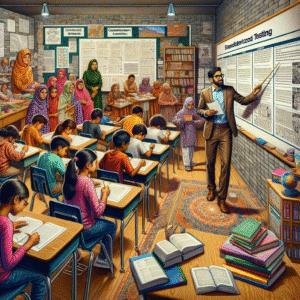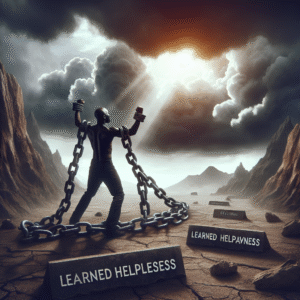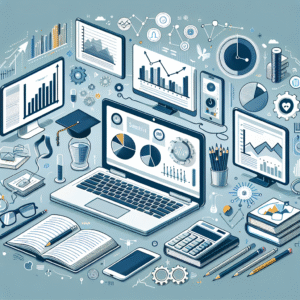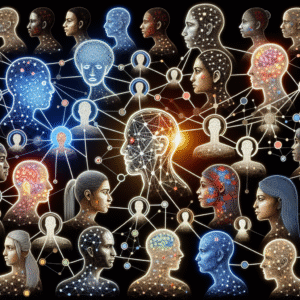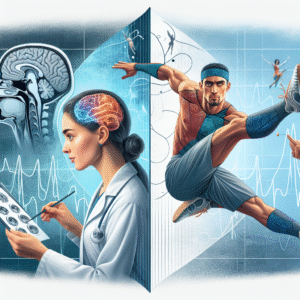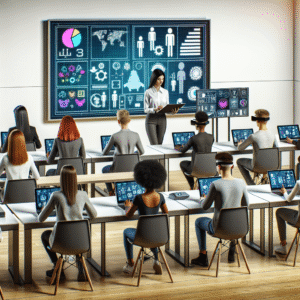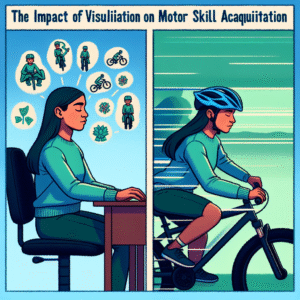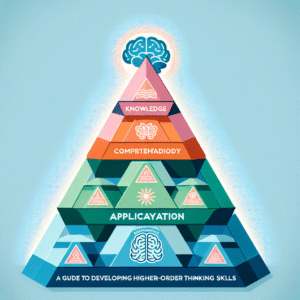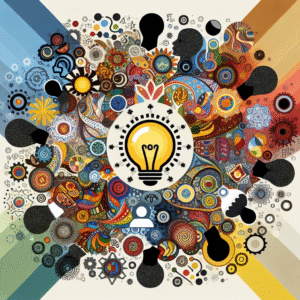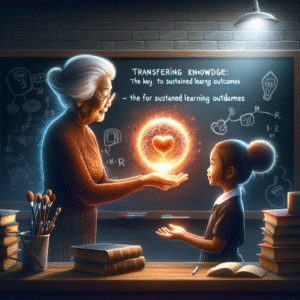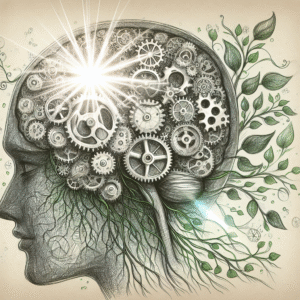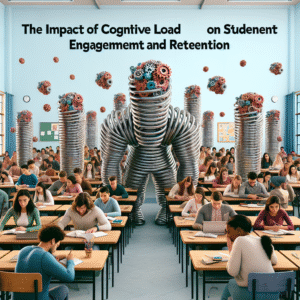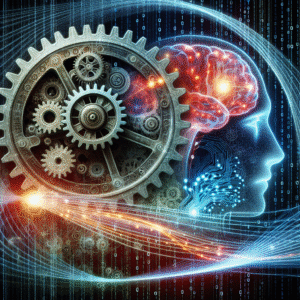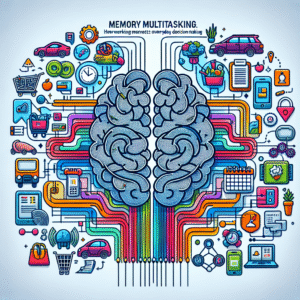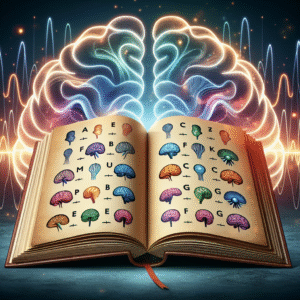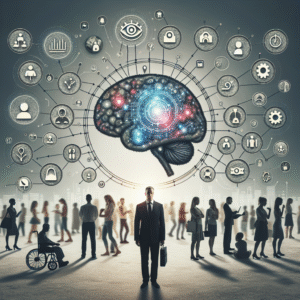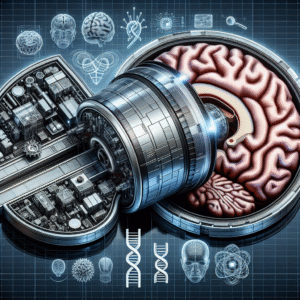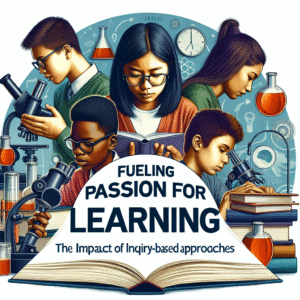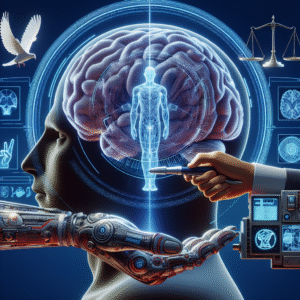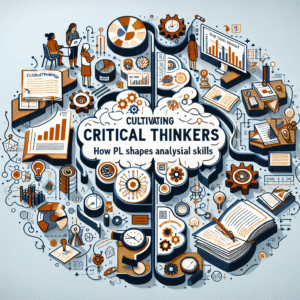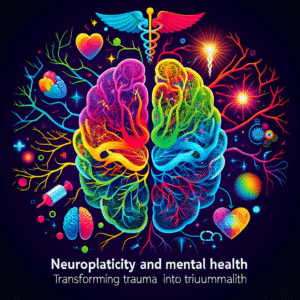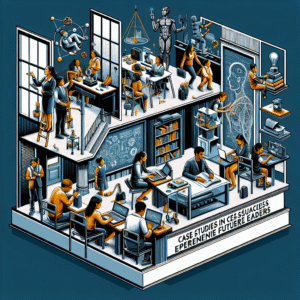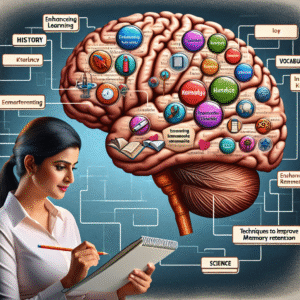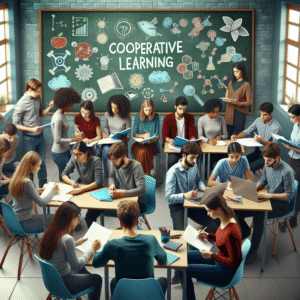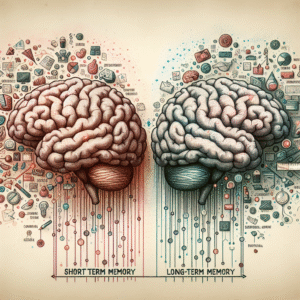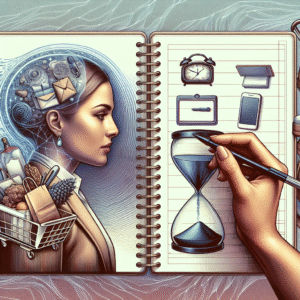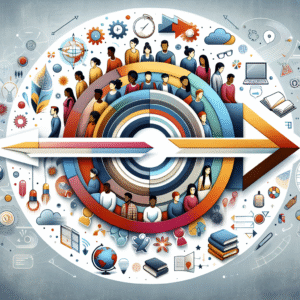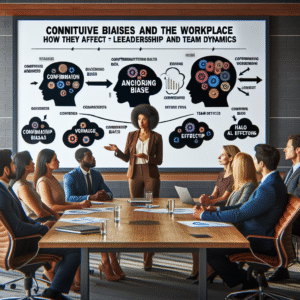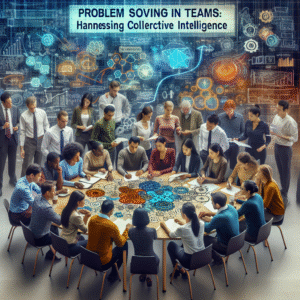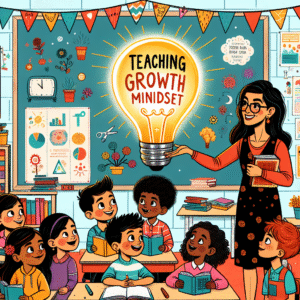Introduction In today’s educational landscape, standardized testing looms large, influencing how educators teach, students learn, and curricula are developed. Often viewed as a necessary evil, standardized tests help measure student performance and accountability within our education systems. However, a deeper examination reveals that how standardized testing shapes curriculum and classroom dynamics goes beyond mere measurement. It not only dictates...
Working Memory
Introduction Imagine you’re gearing up for a big presentation. You’ve rehearsed for weeks, but your heart races as you enter the room filled with fellow colleagues. To your surprise, instead of feeling anxious, your adrenaline kicks in, and you deliver an unforgettable performance. What just happened? This phenomenon is known as social facilitation, and it’s a crucial aspect of...
Introduction Have you ever stopped to consider how age influences the way we perceive speech? This question is not merely academic; it resonates deeply across various fields such as psychology, linguistics, and audiology. As we age, our cognitive processes, sensory abilities, and life experiences shape how we interpret sounds and speech. The impact of age on speech perception is...
Introduction In an era where education is rapidly evolving, the need for effective assessment methods has never been more critical. Traditional assessments often fail to provide a comprehensive picture of a learner’s capabilities, underscoring the importance of exploring innovative assessment techniques. By embracing these tools and tips, educators can not only evaluate student performance more effectively but also enhance...
Introduction: The Strength Within In a world filled with challenges and uncertainties, the concept of resilience has never been more crucial. Many adults face situations that foster a mindset of learned helplessness, where they feel powerless to change their circumstances. This mindset can stem from various experiences, such as traumatic events, chronic stress, or even consistent failure. Yet, within...
Introduction In an era defined by rapid technological advancement, the intersection of technology and language acquisition has never been more pronounced. The significance of The Impact of Technology on Language Acquisition in the Digital Age cannot be overstated; it influences how we learn, teach, and engage with languages across the globe. As more people turn to digital platforms for...
Introduction In an era where education continuously evolves, the integration of data into assessment results has become not just advantageous but essential. The landscape of summative assessment is heavily influenced by the ability to leverage data to inform instructional practices, evaluate student achievement, and enhance learning outcomes. A data-driven approach to summative assessment empowers educators to make informed decisions,...
Introduction Imagine walking into a room filled with laughter; within moments, a smile spreads across your face, and a lightness fills your heart. Now, switch the scene to a crowded subway where frustration and annoyance hang thick in the air. Feeling uneasy, you can’t shake the nagging anxiety. What just happened? This phenomenon—that emotions can influence those around us—leads...
Introduction Picture this: you’re at a bustling cafe, your eyes darting around, taking in the sights and sounds. Suddenly, a friend waves at you from across the room. Without thinking, your body springs into action—your brain coordinates your movements, and you’re out of your chair and waving back. This stunning interplay between perception, motor skills, and cognitive processing underscores...
Introduction In today’s rapidly evolving educational landscape, the integration of technology in the classroom is more crucial than ever. Teachers are constantly seeking innovative tools for formative assessment that can engage students, provide immediate feedback, and elevate learning experiences. This article explores several groundbreaking technologies designed to revolutionize how we assess student understanding, emphasizing the keyword "Tech in the...
Introduction Imagine a pebble thrown into a still pond. As it lands, ripples begin to spread outward, touching everything in their wake. Now, imagine those ripples symbolize our thoughts, beliefs, and expectations—each one igniting a chain reaction that can reshape our society. Welcome to the world of self-fulfilling prophecies. This concept—where believing something can lead to its actualization—has powerful...
Introduction: Unlocking Potential through the Power of the Mind Imagine an aspiring athlete who visualizes themselves executing a flawless routine before stepping onto the field. Every movement is precise, every breath is measured, and success radiates from their very being. This scenario epitomizes the transformative nature of visualization in motor skill acquisition—a tool that transcends mere imagination to enhance...
Introduction In an ever-evolving world filled with information overload, the ability to think critically and creatively has become more essential than ever. How do we cultivate these higher-order thinking skills in our students, professionals, or even ourselves? Enter Bloom’s Taxonomy: A Guide to Developing Higher-Order Thinking Skills. Originally created in 1956 by educational psychologist Benjamin Bloom, this framework has...
Introduction In an increasingly interconnected world, understanding how our backgrounds influence our social cognition has never been more critical. The intersection of culture and social cognition reveals the intricate ways in which personal experiences, traditions, and communal beliefs shape how we interpret social cues, understand actions, and engage with others. From the way families communicate dinner table etiquette to...
Introduction In a world saturated with visual stimuli, the art of design has transformed from mere aesthetics to a powerful communication tool. This shift emphasizes the importance of creating designs that resonate with users on a deeper level. By exploring designing with intention, particularly through the lens of Gestalt principles, designers can create experiences that are not only beautiful...
Introduction In today’s fast-paced world, where knowledge evolves nearly every second, the ability to adequately transfer knowledge stands out as a vital skill—a true game-changer in the realm of education and professional development. Imagine a workplace or classroom buzzing with engaged learners, seamlessly sharing ideas and enhancing one another’s understanding. This is not merely a fantasy; it’s the exciting...
Introduction In a world where change is the only constant, the concept of neuroplasticity shines as a beacon of hope and potential. Imagine being able to not only adapt to change but to thrive because of it. Neuroscience reveals that this is indeed possible; our brains are not fixed but remarkably adaptable. This transformative power, known as neuroplasticity, underpins...
Introduction: The Intriguing World of Perceptual Illusions Imagine walking through an art gallery, only to find a painting that seems to shimmer and shift as you move. Or consider watching a magician meticulously craft a trick that leaves you questioning the nature of reality itself. This is the enchanting realm of perceptual illusions, where our senses betray us, revealing...
Introduction: The Landscape of Thought Imagine navigating a complex city for the first time without a map or GPS. You’d feel overwhelmed, lost, and likely abandon your quest. Now, consider how you’d navigate that same city if you had a mental map—a cognitive map. This concept, at the intersection of psychology, geography, and neuroscience, reflects how we understand and...
Introduction In today’s fast-paced world, where stress levels often peak and wellness trends come and go, one essential truth stands out: happiness and health are intertwined in ways many of us are yet to fully understand. What if we told you that your emotional well-being could significantly influence your physical health? The connection between happiness and health is not...
Introduction In our fast-paced, hyper-stimulating world, creating environments that cater to sensory needs has never been more crucial. For individuals with sensory sensitivities—such as those on the autism spectrum, individuals with ADHD, or anyone simply seeking a calm oasis from daily stress—a sensory-friendly space can transform their well-being. Creating Sensory-Friendly Spaces: Design Tips for Home and Work delves into...
Introduction In today’s fast-paced educational landscape, understanding how factors like cognitive load affect student experience is paramount. The impact of cognitive load on student engagement and retention can redefine teaching methodologies and student outcomes. Are students truly absorbing the material, or are they simply overwhelmed? This exploration provides a roadmap to enhance educational strategies, focusing squarely on the delicate...
Introduction In today’s fast-paced world, where stress and anxiety seem to be an everyday companion, finding effective ways to manage mental and physical well-being is essential. Meditation has emerged as one of the most transformative practices with proven benefits that go beyond just relaxation. If you’re looking to elevate your well-being, the physical and emotional benefits of meditation may...
Introduction Imagine navigating the world through a lens that alters how you experience everything—from the vivid splashes of color in a sunset to the music flowing through your headphones. This lens is not just an artistic tool; it’s the concept of perception that shapes our interactions with technology. In the burgeoning realm of tech, the importance of understanding perception...
Introduction Imagine you’re juggling multiple tasks—answering emails, planning dinner, and catching up on a podcast—all at once. In this whirlwind of activity, how do you manage to make effective decisions? This balancing act is a reflection of what researchers call memory multitasking. In our fast-paced world, understanding Memory Multitasking: How Working Memory Affects Everyday Decision Making isn’t just beneficial—it’s...
Introduction Stress is an inseparable part of modern life, a silent companion that often disrupts our mental clarity, emotional balance, and physical health. Whether it’s the pressure of a demanding job, the chaos of family responsibilities, or the uncertainty of global events, learning to navigate stress is crucial for maintaining a wholesome life. Today, we’ll delve into Navigating Stress:...
Introduction Ever wondered what your brain is up to while you go about your daily activities? The brain is constantly buzzing with electrical activity, and understanding this phenomenon is not only fascinating but also essential for advancements in medicine and neuroscience. In this article, we’ll explore The ABCs of EEG: Understanding Brain Waves and Their Significance, diving into how...
Introduction In today’s fast-paced world, understanding human behavior is more critical than ever. With advancements in psychology, neuroscience, and artificial intelligence, we stand at the brink of a revolution in how we perceive the intricacies of thought processes. One of the essential frameworks that illuminate this complex landscape is the Information Processing Model. By visualizing thought through this model,...
Introduction Imagine waking up every morning feeling invigorated, both mentally and physically—a harmonious balance between body and mind. This scenario isn’t just wishful thinking; it’s entirely achievable through the remarkable concept known as the mind-body connection. In this article, we will delve into Harnessing the Mind-Body Connection: Tips for Enhancing Your Mental and Physical Health that can transform your...
Introduction Have you ever wondered what goes on inside the human brain when we think, feel, and interact? The concept of "Decoding Brain Activity: The Science Behind Functional MRI" holds the key to unveiling those mysteries, providing insight into the complexities of our thoughts and emotions. Functional Magnetic Resonance Imaging (fMRI) serves as one of the most revolutionary tools...
Introduction In an increasingly information-rich world, the way we educate ourselves and others is undergoing a transformative shift. Gone are the days of rote memorization and passive learning. Today, the landscape is blossoming with inquiry-based approaches, fundamentally changing how knowledge is absorbed and retained. "Fueling Passion for Learning: The Impact of Inquiry-Based Approaches" is not just a catchphrase; it...
Introduction Memory is the tapestry of our lives, weaving together experiences, knowledge, and identity. It shapes who we are and how we understand the world. But what happens to our ability to form memories as we journey from the innocence of childhood to the wisdom of old age? Memory formation across the lifespan is a captivating topic that bridges...
Introduction Imagine a world where doctors can see what’s happening inside your brain in real-time, potentially detecting mental disorders before symptoms even develop. The future of brain imaging looks promising, with revolutionary technologies on the horizon, from advanced MRI techniques to artificial intelligence algorithms that may change how we understand the human brain. These innovations not only foster incredible...
Introduction In a world that thrives on innovation and creativity, the need for cultivating critical thinkers has never been more essential. The evolution of the job market and the rapid pace of technological advancements demand that individuals possess strong analytical skills. One highly effective framework that educators and institutions are adopting is Project-Based Learning (PBL). By immersing students in...
Introduction In today’s fast-paced world, the ability to make decisions under pressure is not just an asset; it’s essential. From corporate boardrooms to emergency rooms, the stakes are high, and the moments to act are fleeting. Imagine being a pilot navigating through a storm or a surgeon deciding on a critical procedure with limited time. The choices made in...
Introduction Imagine the vast potential of a mind that can adapt, heal, and transform itself over time. Neuroplasticity, a groundbreaking principle of neuroscience, reveals that our brains are not static entities but are remarkably flexible. This incredible capability not only influences our cognitive abilities but also plays a pivotal role in mental health. By embracing the concept of Neuroplasticity...
Introduction In the rapidly evolving landscape of business and leadership, traditional learning methods often fail to equip future leaders with the necessary skills to navigate complexity and uncertainty. Enter experiential learning—a hands-on, immersive approach that allows individuals to engage directly with their environments, transforming theory into practice. This article delves into compelling case studies in success, illustrating how experiential...
Introduction In today’s fast-paced world, emotional regulation isn’t just a buzzword; it’s an essential skill that can transform the quality of our interactions, both in personal and professional settings. It’s all too easy to be swept away by the tides of our emotions, leading to misunderstandings, conflicts, and poor communication. However, effective emotional regulation is the key to fostering...
Introduction Imagine sitting in a lecture, absorbing information like a sponge, only to question everything you learned during your next exam. This scenario highlights a pressing concern in education and self-learning: memory retention. With a world overflowing with information, knowing how to retain knowledge effectively is crucial. In this comprehensive guide, "Enhancing Learning: Techniques to Improve Semantic Memory Retention,"...
Introduction In a rapidly evolving world marked by technological advancements and shifting job landscapes, the importance of collaboration in education and the workplace has never been more pronounced. Cultivating Skills for Tomorrow: The Benefits of Collaborative Learning isn’t just a catchy phrase; it’s a call to action for educators, employers, and learners alike. As we step into an era...
Introduction Parenting is a multifaceted journey filled with challenges, joys, and the constant quest to find the best methods for raising happy, responsible children. Among the myriad of strategies available, negative reinforcement often comes into play, albeit in unanticipated ways. Understanding The Role of Negative Reinforcement in Parenting: Strategies for Success can provide essential insights that empower parents to...
Introduction Imagine waking up in a world where cherished memories have faded into oblivion, where the very essence of who you are slips through your fingers like sand. This is the poignant reality faced by millions dealing with amnesia and memory loss. The question that haunts them and their loved ones is, What Happens When Episodic Memory Fails? Understanding...
Introduction In an era where education is rapidly evolving, the question of how to effectively engage students has never been more pertinent. Imagine a classroom buzzing with excitement, where collaboration flourishes, and students not only absorb knowledge but also deepen their understanding through interaction. Welcome to the world of cooperative learning—a dynamic approach that holds immense promise for enhancing...
Introduction: The Transformational Power of Encouragement Imagine a world where every interaction leaves someone feeling uplifted, valued, and motivated. This isn’t just a fantasy; it can be a reality through effective encouragement. At its core, encouragement is a catalyst for personal and professional growth. The Art of Encouragement: Mastering Positive Reinforcement Techniques delves deep into how this powerful practice...
Introduction Memory is the cornerstone of human experience, intricately woven into the fabric of our everyday lives. Whether recalling where you left your keys or reflecting on a cherished childhood memory, your memory plays a vital role in shaping your identity and decision-making. In the discussion of Short-term vs Long-term: Understanding Memory Types and Their Functions, we dive deep...
Introduction In an increasingly diverse world, standardization in education often falls short of meeting the needs of every student. Imagine walking into a classroom where every student feels valued, understood, and engaged—not just as learners, but as individuals. This is where Beyond Standardization: How Differentiated Instruction Fosters Engagement and Success becomes essential. Differentiated instruction is not just a teaching...
Introduction Life is an unpredictable journey, filled with bumps, detours, and occasional roadblocks. The ability to navigate through these challenges can make all the difference in our personal and professional lives. This is where Building Resilience: Strategies to Cope with Life’s Challenges becomes critical. Resilience is not an inherent trait; rather, it is a skill that can be nurtured...
Introduction In a world where multitasking has become the norm, the ability to manage our short-term memory is essential. Whether you’re trying to remember what to buy at the grocery store or preparing for an important meeting with stakeholders, mastering short-term memory can significantly boost your effectiveness in daily life. You might think it is impossible to juggle several...
Introduction In an ever-evolving educational landscape, where diversity is not just an ideal but a reality, educators face the challenge of creating inclusive and engaging learning experiences. Enter User-Centered Design: Tailoring Educational Experiences for Diverse Learners, a powerful framework that empowers educators to meet the unique needs of every student. As we navigate through this article, we will explore...
Introduction In an age where social media dominates communication and information dissemination, the power of social influence has never been more pronounced. Whether it’s a viral campaign advocating sustainability or a community initiative rallying support for local schooling, the ability to harness social influence can catalyze remarkable change. Understanding Harnessing Social Influence: Strategies for Positive Change in Communities is...
Introduction In a world increasingly dictated by multitasking and information overload, the role of working memory has never been more vital in determining our mental health and overall well-being. Working memory acts as our mental workspace, allowing us to hold and manipulate information temporarily. But what happens when this essential cognitive function is compromised? Research increasingly points to a...
Introduction Imagine stepping into a classroom where every student is fully engaged, where laughter mingles with learning and mutual respect flows effortlessly among educators and learners. This ideal environment is not a distant fantasy; it is a practical reality born from one foundational element: Building Strong Relationships: The Key to Effective Classroom Management. Creating and nurturing relationships with students...
Introduction In a world where our worth often seems tied to external validation, understanding the intricate relationship between self-esteem and mental health becomes essential. The connection between self-esteem and mental health isn’t just a psychological theory; it’s a lived reality for millions of individuals navigating the complexities of life. This article delves into the nuances of this connection, offering...
In today’s complex work environment, understanding the interplay of human psychology and organizational behavior is more crucial than ever. One of the most overlooked yet potent aspects of this interplay is the impact of cognitive biases. Cognitive biases shape how leaders make decisions and how teams interact, ultimately driving performance, creativity, and employee satisfaction. This article dives deep into...
Introduction Imagine a world where your potential is not defined by your past but shaped by your willingness to learn and grow. This fascinating idea is at the heart of the debate between fixed and growth mentalities. Mindset Matters: The Science Behind Fixed vs. Growth Mentalities, is more than just a catchy phrase; it embodies a pivotal aspect of...
Introduction Imagine the foundation of your emotional life being laid during the tender years of childhood. Just as a house requires a solid base to withstand storms, your emotional health and relationships are shaped by the attachment styles developed early on. These vital connections with caregivers not only influence childhood experiences but also cast long shadows into adulthood. From...
Introduction In today’s fast-paced world, the ability to solve problems effectively is more crucial than ever. As challenges become increasingly complex, organizations are discovering that problem solving in teams: harnessing collective intelligence can lead to innovative solutions that far exceed what any individual could achieve alone. Imagine a scenario where diverse minds come together, each contributing unique perspectives and...
Introduction In today’s rapidly changing world, the ability for children to adapt, learn, and grow has never been more critical. The modern educational landscape is filled with challenges—from unexpected shifts to technological advancements—that require students to not just accept change but thrive in it. Enter the concept of a growth mindset: the idea that intelligence and abilities can be...
Introduction In our fast-paced, constantly connected world, quality sleep often feels like a luxury we can’t afford. Stress, anxiety, and the relentless demands of our daily lives can sabotage our nighttime rest, leading to a cascade of negative effects on our physical and mental well-being. But why is sleep hygiene so critical? The answer lies not just in the...
Introduction We’ve all made mistakes. Whether in our personal lives, at work, or in our relationships, poor decisions can lead to regret and frustration. However, what if I told you that mistakes could be your greatest teachers? The journey of life is paved with errors, and instead of viewing these missteps as failures, we can see them as essential...
